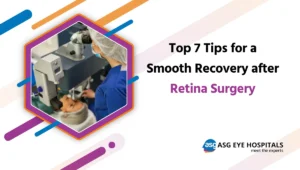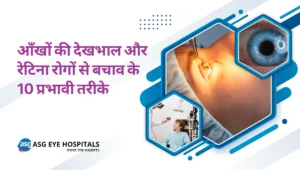Protecting your eyes from the need for glasses involves maintaining good eye health and practicing healthy habits. While genetics and some factors are beyond your control, here are some tips to help keep your eyes healthy and potentially reduce the risk of needing glasses:
- Eat a Balanced Diet: Nutrients like vitamins A, C, and E, as well as minerals like zinc and omega-3 fatty acids, are beneficial for eye health. Consume a diet rich in fruits, vegetables, and fish to support your eyes.
- Stay Hydrated: Dehydration can affect eye health. Ensure you drink an adequate amount of water daily to keep your eyes moist and comfortable.
- Protect Your Eyes from UV Radiation: Prolonged exposure to ultraviolet (UV) rays can increase the risk of eye problems. Wear sunglasses that provide UV protection when outdoors, even on cloudy days.
- Limit Screen Time: Staring at screens for extended periods can lead to digital eye strain. Observe the 20-20-20 rule, which states that you should gaze at anything 20 feet away for 20 seconds every 20 minutes.
- Take Regular Breaks: If you have a job that requires extended periods of close-up work, such as reading or using a computer, take frequent breaks to relax your eyes.
- Quit Smoking: Smoking is linked to an increased risk of eye diseases such as cataracts and macular degeneration. Giving up smoking can help keep your eyes safe.
- Control Chronic Health Conditions: Conditions like diabetes and hypertension can affect your eye health. Manage these conditions effectively to reduce the risk of eye problems.
- Stay Active: Regular physical activity can improve blood circulation, which is beneficial for your eyes. It can help reduce the risk of diabetes and high blood pressure, which are risk factors for eye problems.
- Regular Eye Check-ups: Visit an eye specialist for routine eye examinations. Detecting and addressing eye issues early can help prevent the need for stronger prescriptions and glasses.
- Use Proper Eye Protection: If you engage in sports or activities that can pose a risk to your eyes, wear protective eyewear. This can prevent injuries that may lead to vision problems.
- Practice good hygiene: wash your hands before touching your eyes and avoid rubbing your eyes, which can introduce germs and irritants.
While these tips can promote good eye health and reduce the risk of needing glasses, it’s important to remember that vision changes can be a natural part of ageing. Other factors, such as genetics, might also be involved. Regular eye check-ups and consultations with an eye specialist are essential for maintaining optimal eye health and addressing any vision issues that may arise.



